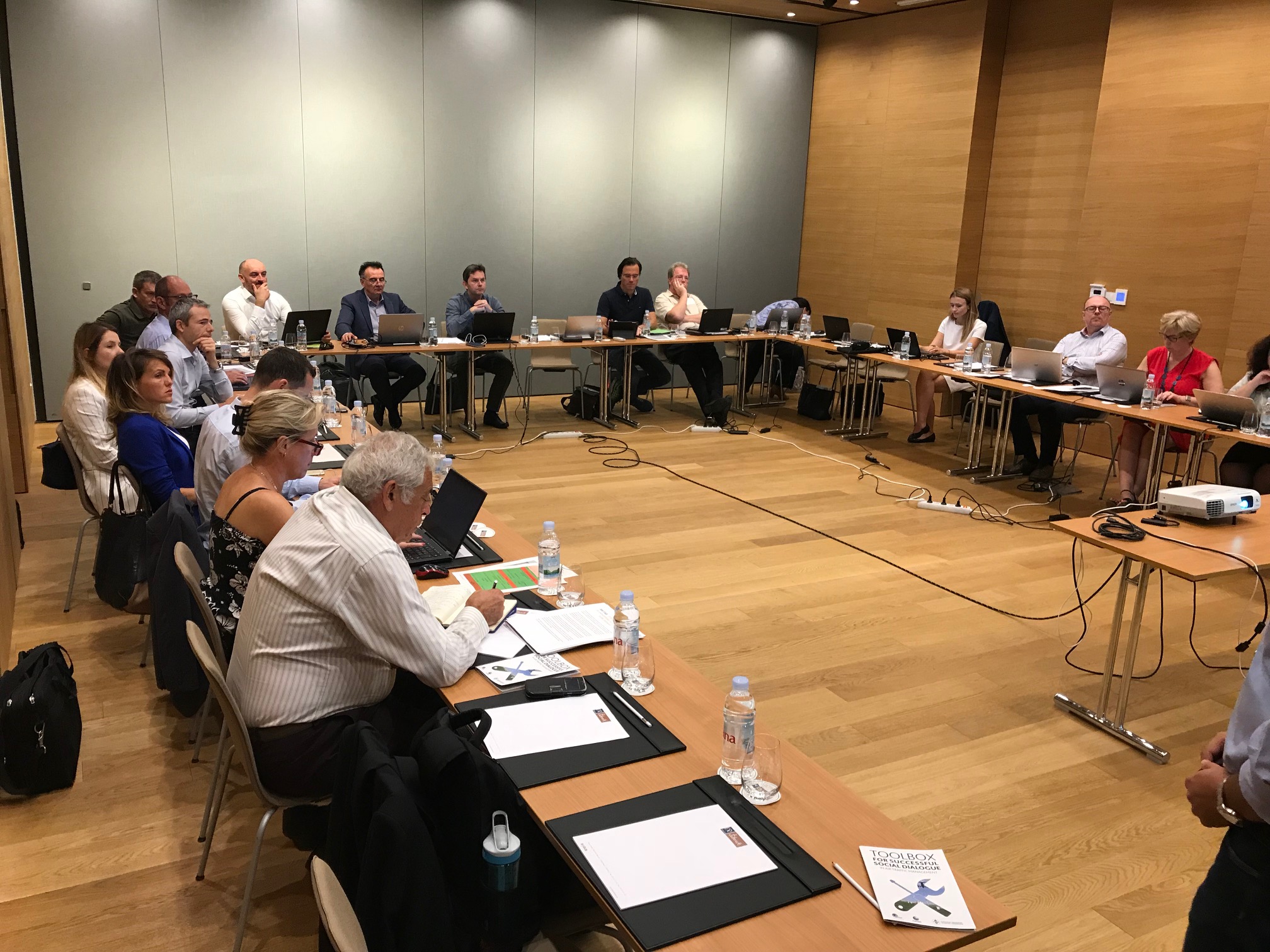On the initiative of FAB CE, 25 representatives from Ministries of Transport, National Supervisory Agencies and Air Navigation Service Providers representing BALTIC FAB, BLUE MED FAB, DANUBE FAB, FAB CE, FABEC and South-West FAB met in Sibenik, Croatia, on September 21, to discuss current and upcoming challenges of European aviation.
Regional cooperation demonstrates sustainable benefits
A diverse range of topics at stake like the airspace architecture strategy, the preparation of RP3, the advantages and disadvantages of fragmentation and a system of system approach for European Air Traffic were discussed. In addition, participants agreed on several actions with regard to address severe issues like the impact of climate change and volatility both on safe operations and asymmetries in the current regulatory system. FAB representatives shared best practices on social dialogue, agreed on further steps on the execution of the common InterFAB communication strategy and discussed studies on the EU-US Comparison as well as on the added value of FABs.
Overall, participants shared the view that neither the current performance regulation nor the one that is currently under development provides sufficient flexibility with the challenges of the strong traffic increase, traffic volatility or the impact of climate change. In addition, the workshop agreed based on the results of Volatility Workshop conducted in Warsaw in May 2018 that the aviation chain can only be stabilized, if all partners contribute and take their share of responsibility. However, currently the key element of overarching data of the performance of the whole aviation chain – gate-to-gate - is missing. Data from Eurocontrols Central Office of Delay Analysis is seen as good starting point, but as an example does not incorporate the raising number of flight cancellation hampering passengers’ wishes to travel.
Due to the intense and constructive discussion participants concluded that the InterFAB initiative – and by this FABs as such – are demonstrating substantial benefits and agreed to further structure the work to be conducted in the upcoming years.

